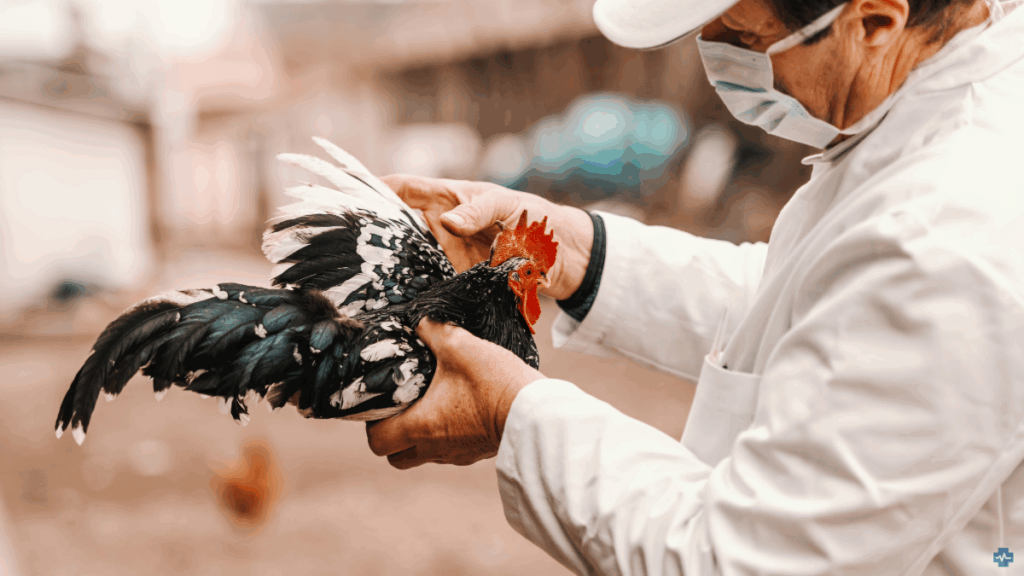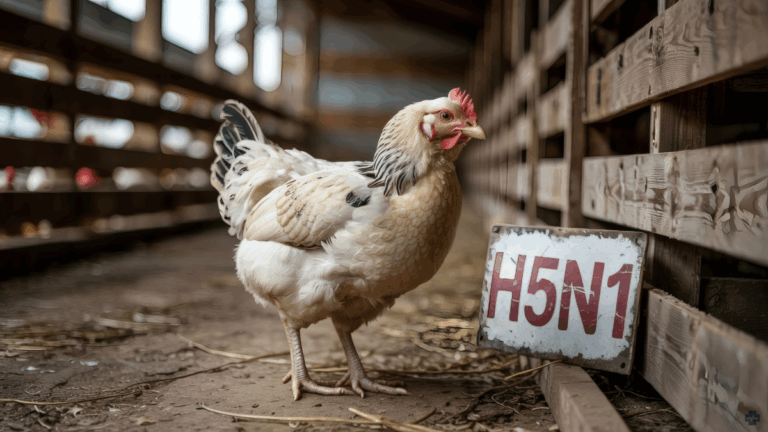In a move that has raised significant concern among public health professionals, the U.S. government has quietly stopped key bird flu (H5N1) surveillance programmes, including national milk testing and public reporting of outbreak data. This decision comes amid ongoing outbreaks affecting poultry, dairy cattle, and a growing number of human cases across the country.
Monitoring viruses and flu outbreaks is one of the most essential tools in preventing pandemics and safeguarding public health. Surveillance allows scientists and health agencies to detect new outbreaks early, track how diseases spread, identify mutations in viruses that could make them more dangerous, and assess whether treatments and vaccines will still be effective.
Without this real-time data, health officials are essentially flying blind and unable to warn the public, protect healthcare workers, or take steps to contain the virus.
Why is The Cancellation of Bird Flu Surveillance Concerning?
News reports say that health officials are concerned about the decision to stop bird flu surveillance programmes. Reports state that they are blowing the whistle for several reasons. First, the virus is not just affecting wild birds or poultry. It has now spread to dairy cattle and infected dozens of people, primarily farmworkers. These developments suggest that the virus is adapting and potentially becoming more transmissible to humans.
Second, halting milk testing and public data reporting removes a critical early warning system. Scientists can no longer track if the virus is mutating in dangerous ways or determine whether it is present in consumer products or spreading in new regions. Transparency and rapid communication are foundational in outbreak response. Without them, both public awareness and scientific research suffer.
The CDC also canceled a planned workshop by the National Academy of Sciences aimed at preventing human bird flu infections, which was intended to provide guidance on best practices, particularly regarding personal protective equipment (PPE) for high-risk individuals such as farmworkers and veterinarians. The Department of Health and Human Services, which oversees the CDC, has not commented on these cancellations.
Experts, including Dr. Tyler B. Evans and public health advocate Dotsie Bausch, warn that ending these programmes removes critical defenses against the virus’s spread, especially in rural and farming communities.
Dr. Evans, MD, MS, MPH, AAHIVS, DTM&H, FIDSA, is a distinguished physician and public health leader with extensive expertise in infectious diseases, global health, and health equity. He currently serves as the CEO and co-founder of the Wellness and Equity Alliance, a national network dedicated to transforming healthcare delivery for vulnerable populations.
In addition to her public health advocacy, Bausch has highlighted the connection between animal agriculture practices and zoonotic diseases like bird flu. She has pointed out that industrial farming conditions can serve as breeding grounds for such viruses, posing significant risks to both animal and human health. Through her organisation, Switch4Good, Bausch continues to advocate for the health implications of animal-derived food products.
Current Status of Bird Flu in the U.S

As of May 2025, the H5N1 bird flu virus has spread to poultry in all 50 states and to dairy cattle in 17 states. There have been 70 confirmed human cases in the past year, primarily among farmworkers, with symptoms ranging from mild to severe respiratory illness. The first human death in the U.S. was reported in early January 2025.
Human infections with H5N1 can vary from mild to severe. Common symptoms include eye redness or irritation (conjunctivitis), fever, cough, sore throat, runny or stuffy nose, muscle or body aches, headaches, and fatigue. Severe cases may involve shortness of breath, pneumonia, acute respiratory distress syndrome, multi-organ failure, sepsis, or inflammation of the brain (meningoencephalitis).
The incubation period typically ranges from 2 to 7 days. While human-to-human transmission remains rare, the virus’s ability to mutate raises concerns about its potential to spread more efficiently among people.
A High Human Mortality Rate
While human-to-human transmission remains rare, the virus’s ability to infect people repeatedly increases the chance of mutation into a more contagious form. In early 2025, the U.S. recorded its first human fatality from bird flu, marking a sobering milestone. This death has intensified officials’ concerns over the virus’s threat to public health.
Infected dairy cows have been shown to shed the virus into their milk, although pasteurization appears to kill it. Still, the presence of viral particles in raw milk prompted widespread testing, until the programme was recently halted.
Globally, H5N1 has a human fatality rate of over 50 percent in confirmed cases, according to the World Health Organisation. Although the U.S. cases so far have been milder, the potential for deadlier strains emerging remain a serious concern.
The bird flu outbreak has also led to significant economic consequences, particularly in the egg industry. Major egg producers have reported substantial profits due to high egg prices, even as they received federal subsidies for losses attributed to avian flu.
Ongoing Outbreaks & Economic Impact
While federal oversight has weakened with these latest developments, news reports say that Massachusetts has maintained rigorous bird flu testing, offering a model for other states in the absence of national coordination.
Since August 2024, the Massachusetts Department of Agricultural Resources (MDAR) has implemented a statewide initiative to test bulk milk samples from all dairy farms monthly. Utilising advanced digital PCR techniques, this programme has consistently reported no detections of H5N1 in the state’s dairy cattle, providing confidence in the safety of the milk supply. The state’s proactive approach has been recognised nationally, with Massachusetts being the first to report 100 percent negative results from dairy herd testing.

